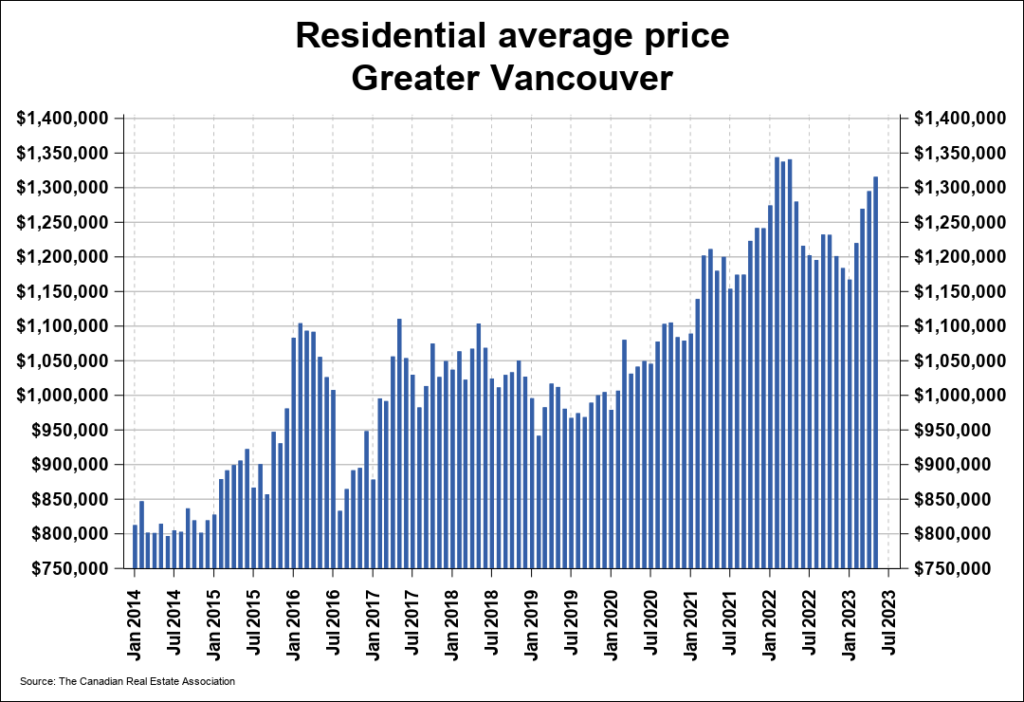BC real estate market outlook 2023
Home to Canada’s most expensive metropolitan area, British Columbia is also one of the most desirable places to live in Canada, with beautiful scenery, and a mild Pacific-coast climate.
History of British Columbia
Canada’s province in the Pacific Northwest, with its stunning scenery and mild weather, is home to one of the most in-demand cities in the world. Historically the province of British Columbia first came into existence in the 1800’s following the gold rush that brought many settlers west in search of fortune. The city of Vancouver rapidly expanded in the late 1800’s and due to its location on the west coast the city has become home to a large asian diaspora that contributes to the cities culture and history. The majority of British Columbia’s population live on Vancouver island where the province’s capital Victoria is, in the Fraser valley which follows the Fraser river, or the Okanagan valley which makes up much of the B.C.’s interior.
How the mortgage market impacts housing prices
In the past year the Bank of Canada has increased rates to their highest level in 22 years. The Bank of Canada’s goal is to reduce inflation by curbing demand through a higher cost of borrowing. When the Bank of Canada raises interest rates, mortgages become more expensive, leading to decreased demand, which in turn reduces the price of homes.
The Bank of Canada raised rates again in July 2023 brining the key rate to the highest it’s been in over two decades. While interest rates may continue to rise in the short term, analysts are in agreement that when inflation is brought under control the Bank of Canada will likely start to consider lowering rates again in the future.
With the Bank of Canada increasing rates rapidly over the past year, we’ve seen firsthand the impact that the mortgage market can have on the price of homes. When interest rates rise, mortgages become more expensive, leading to less buyers being able to qualify for a mortgage, and decreased demand for borrowing. When less people can afford their mortgage, less people buy homes, and so the demand for homes decreases which has a negative impact on the price of homes. This played out in real time recently as the benchmark price of homes decreased sharply as interest rates went up.
Check out our interest rate forecast for more information on where interest rates are likely to go.
Supply and demand
The price of housing in Canada is primarily impacted by the two fundamental forces of economics: supply and demand. When the price of housing is on the rise, we can assume that demand is outpacing the new supply of homes. Both supply and demand are impacted by a number of factors, for example demand for housing increases with population, but it also increases as the cost of borrowing lowers, as more people can afford a larger mortgage.
Canada’s population has been on the rise for many years, with most newcomers to Canada settling in major city centers like the Greater Toronto Area (GTA) and the Greater Vancouver Area (GVA). These cities are popular due to their infrastructure, diversity, job market, and more, which makes it no surprise that demand is highest in these areas. As a result the cost of housing in Toronto and Vancouver is much higher than other areas in Canada. The further away from major city centers you go, the cheaper the price of housing is, due to lower demand.
Recommended reading: How population affects the housing market.
On the supply side, it can be slow to build new housing, with contractual issues, and a lack of trade workers. Ontario in particular has been said to be in a draught of skilled trade workers, which has led to some analysts warning that it’s currently not possible to build enough homes at our current rate to increase housing affordability.
The housing market in Vancouver
Vancouver with its respective larger metropolitan area, is one of the most densely populated areas in Canada. With the demand for living in Vancouver higher than anywhere else in the country, it’s no surprise that the benchmark price of a home is also a league above that of elsewhere. At the same time, with interest rates on the rise, and the cost of a mortgage becoming more expensive, the prices in the GVA have decreased the most compared to other cities.

While prices have declined significantly since the peak in early 2022, following inflation slowing down and future outlook on the mortgage market becoming more optimistic, the market has started to show signs of turning around in 2023. Despite being down 5.60% year over year in May of 2023.
Why are homes in British Columbia so expensive?
Like any market, the housing market in Canada is primarily a function of supply and demand. When the demand for homes increases relative to the supply, the price will increase. British Columbia, is the third most populated province in Canada and many newcomers to Canada settle in the province, meaning it’s one of the fastest growing as well. Much of B.C. is made up of land that is hard to develop on which condenses much of the province's population in a small area, leading to high population density within cities.
In Vancouver, where prices are highest, the city is surrounded by barriers preventing the building of new homes. To the west is the Pacific, to the South the American border, and to the North and East the coast mountains which condense much of the province's population into the Fraser valley. As a result, developers are limited in their options for building new supply of housing, leading to the only viable option being the creation of denser housing units.
Recommended reading: Why is housing so expensive in Canada?
For help with homeownership at every step along the way, sign-up for Perch and make homeownership simple.






